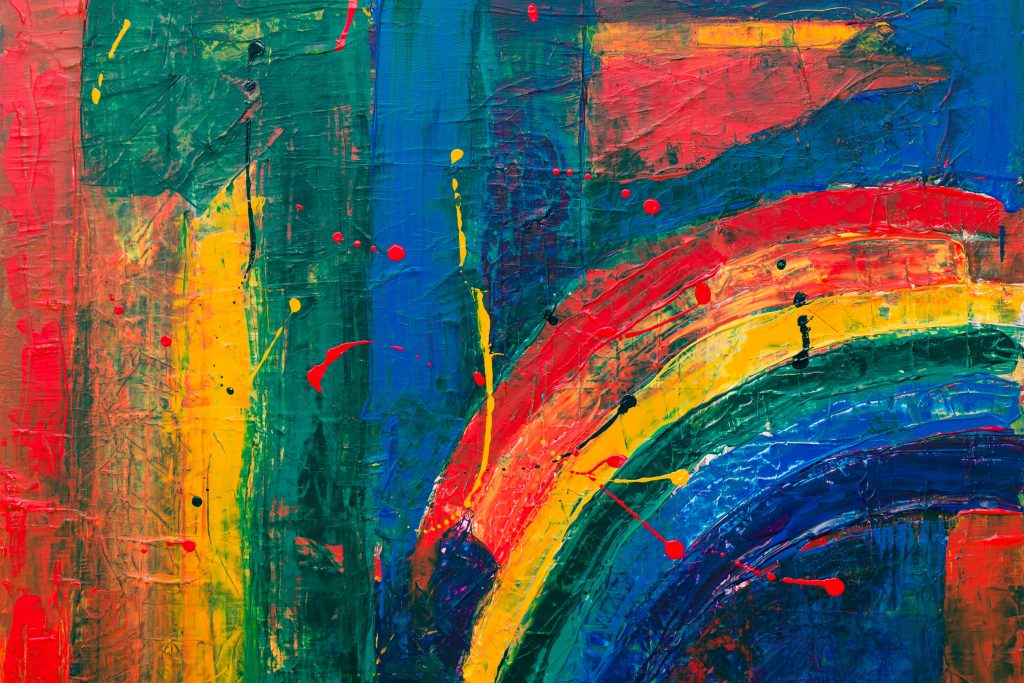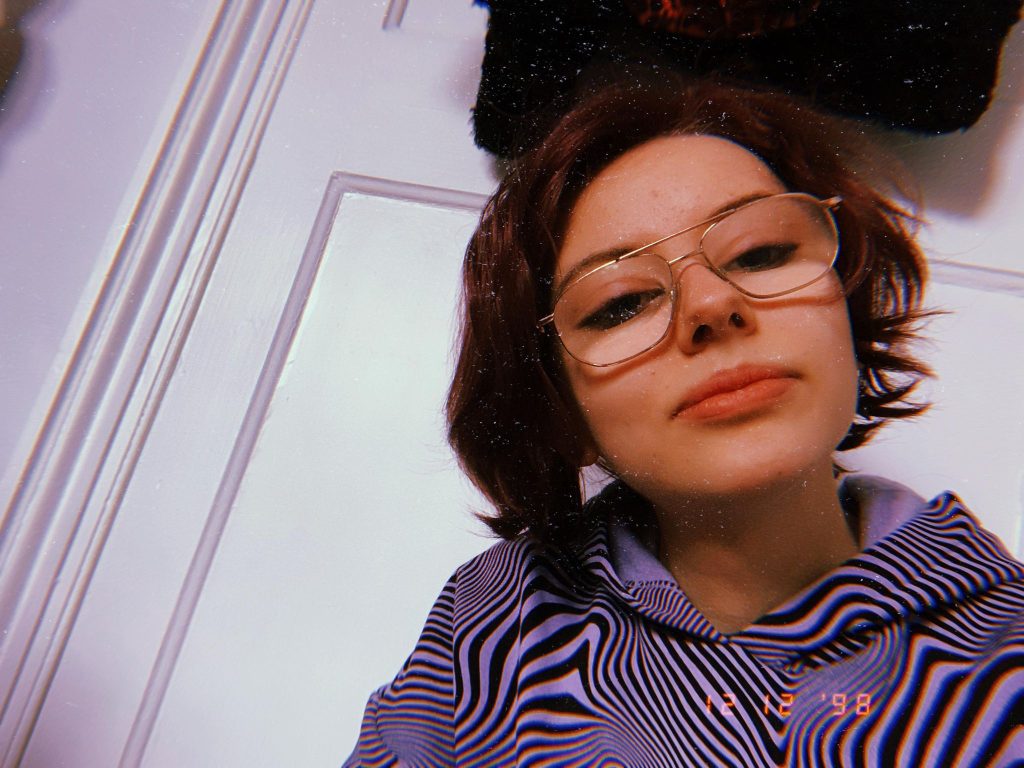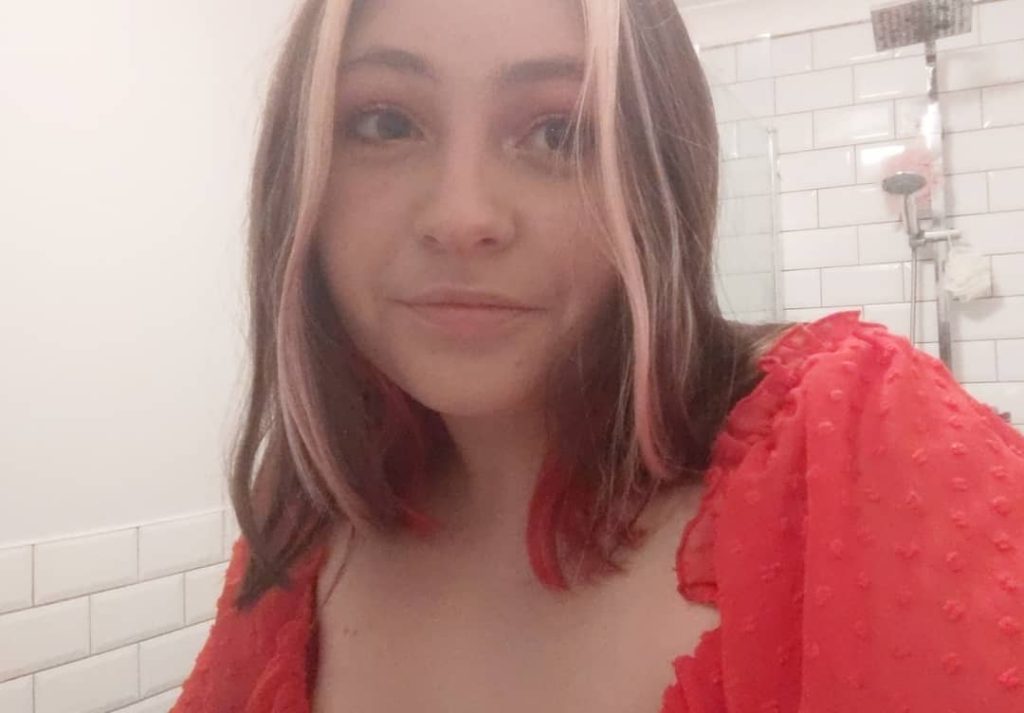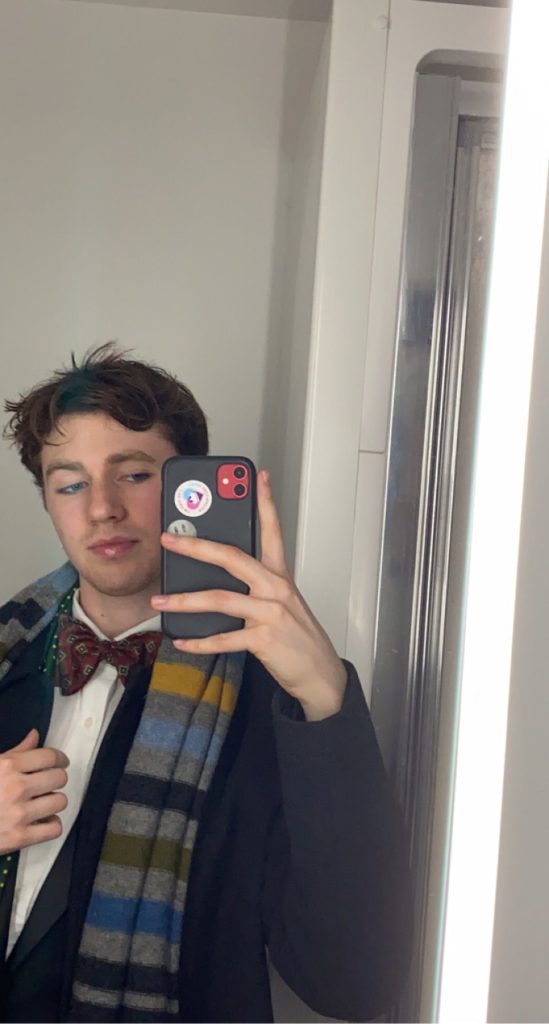
University is often considered a place to ‘find yourself’. Most students have come straight from A-Levels, from the cliquey savagery that defines one as ‘popular’, ‘unpopular’, ‘weird’, ‘edgy’. In my experience of a small-town, back-arse-of-nowhere all-girls’ school, these categories trumped any personal identity. University, on the other hand, is all about individuality. Sometimes it’s almost like a game of ‘who can be the MOST unique, quirky, fucked-up of them all?’ Those kids who ran the social hierarchy in school (you can detect them because they adamantly claim that ‘popularity wasn’t a thing in their school’) have to re-adjust to this new ecosystem, leaving many 18-year-olds to essentially start again. Of course, many have been grappling with their identity long before university, maybe even poking at it since as early as childhood. We spoke to four LGBT+ students who detail their experience of coming out in school, in university, and the impact queer culture has made. Amidst the popularity wars, ego trips and existential angst, some teens also contend with sexuality, gender and the discovery of who they are.
Dorian, 20 (they/them)

Can you tell us about your journey with the LGBT+ community?
I came out as bisexual when I was 13. I was on a school trip to Paris and, as a chronic over-sharer, I couldn’t wait to tell people. I told Mum three days after the trip. Her reaction was ‘okay’ – she wasn’t bothered at all. When I was 15 or 16, I thought I was a lesbian. I told Mum first…coming out that time was more terrifying. I think there’s more stigma around being a lesbian. Around the same time, I started realising things about my gender. When I was in sixth form, I started using they/them pronouns. Then when I came to Royal Holloway, I hoped straight back in the closet at first. In school, my friend group were really open – half of us were non-binary – then I came to RHUL, and I just didn’t know what I was walking into. I didn’t know what the consensus was on trans people. My plan was to hopefully come out in term two, then the pandemic hit. During lockdown one, I sat and thought about it for a long time. I decided that I was sticking with it, and I was going to start correcting people. I also discovered I was bi in this time.
How’s the LGBT+ community on-campus?
When I was in first year there were very few visibly queer students. Now, I feel like first years are more open. There’s more visibility on-campus. But I still feel like Royal Holloway don’t try very hard for queer people. There are not many events, there’s not much presence. If the LGBT+ society wasn’t on my radar, I wouldn’t know they were there. The SU do glitter bomb night once a term, but it’s not enough.
What’s your best queer moment?
At Bristol Pride in 2019, I went to see Boney M and it was just an entire field of gay people singing along to Rasputin. That was pretty solid. I was wearing a rainbow cowboy hat.
Beth, 20 (she/they)

Can you tell us about your journey with the LGBT+ community?
For as long as I can remember, I’ve been an ally. Before I even knew I was queer, I was really into LGBT+ rights and then the more I did research, the more the labels felt accurate. I think the education side is really important. If I hadn’t done the research myself, I would probably be identifying as straight and thinking there was something wrong with me. In actuality, there’s nothing wrong with me…I just needed to fight the labels that fit. I now like to use terms interchangeably; I used to get stuck up on specific labels. I like the term lesbian, queer. Although I actually never really came out per se. I figured things out on my own and didn’t really feel the need to tell other people. I only told my dad this year. My mum has always known. I needed a lift to my first date when I was fifteen, and I casually mentioned it was with a girl. She was very chill; I’m incredibly lucky I have such supportive family. When I first decided to start using she/they, I was worried. I felt like I hadn’t earnt it in the same way. I’m not cis, I feel a disconnect from my assigned gender, but not to the extent that I want to transition. I guess I never felt like I was trans enough. But then I saw this thing online. Someone wrote ‘Gender does not equal pronouns.’ That’s when it clicked for me; I can use any pronouns and it doesn’t define me.
What’s your best queer moment?
It happened recently. I was in a restaurant with my brother, and he was on a phone call. On the call, he referred to me using ‘they’ pronouns. He did it completely without thinking, it was just natural. I felt a euphoria when I looked up him, and I just smiled.
Your best advice for students at Royal Holloway exploring their gender and/or sexuality?
Make sure you’re coming out for the right reasons, and that reason should be because you want to. The media often fool you into thinking that when you come out it will be dramatic and polarising, and you’ll have either good or bad reactions. But for some people, coming out is quite neutral. Most of my experiences have been quite calm, which I’m grateful for.
Max, 19 (he/him)

Can you tell us about your journey with the LGBT+ community?
There wasn’t a community in my secondary school, or sex education that was inclusive of bisexual men. They mentioned gay sex in a sort of ‘ticking a box’ way, but it was minimal to the point of irrelevance. For myself and quite a few other people, we started to come out after secondary. Once I started college, I said I was bi if someone asked. But I’ve always been quite personal about these things, it didn’t make a major difference whether other people knew. It was 2019 that I first went to the Pride parade in London. I think that was the first community experience I had.
What has your LGBT+ experience at Royal Holloway been like so far?
I haven’t joined any relevant societies yet, I’m pretty happy thriving by myself. There’s definitely a lot of opportunity to explore your sexuality in a physical and romantic way; a lot of people are out and open on-campus. It’s quite nice, having come from a largely heterosexual environment at school, to be a part of this more open environment. However, one night at the SU, there was a group of lads that were being really loud and in your face. If you go near this group, you’re sort of given the hint that you’re not invited. You’re excluded. I just had enough this night, and I got off with another guy right in front of them. They were all staring. Dead staring.
What’s your best queer moment?
I think discovering that I’m good at make-up. One day I just bought some cheap eyeliner and tried it at home. It was the perfect wing. I didn’t really know how I did it, but I knew I liked it.
What’s your best queer recommendation?
I recently watched a film called Detachment, directed by Tony Kaye. On the surface it’s got nothing to do with the community, but I think you can interpret it in any way you want. I saw it as about identity and finding yourself.
Jon, 26 (he/him)
Can you tell us about your journey with the LGBT+ community?
I feel like the word ‘community’ has changed over time. I come from a small town in Wales, and when I was growing up, there were almost no LGBT+ people at school. There wasn’t, at the time, a queer scene that was easily accessible to teenagers in the area either. We had old-school Instagram, and Facebook, but they looked nothing like they do today…they weren’t politicised in the same way. In terms of exploring my sexual orientation whilst still in school, I didn’t. I couldn’t. I was also in quite a religious household and didn’t want to be caught doing anything. There was one kid at school known as ‘Gay Yihan’. He kind of used it as a power move, so when people tried to make fun of him for it, he would turn that against them. There was a funny acceptance going on there. At Uni, I was saying I was bi. I realised throughout my time at Bristol that I didn’t have to be flamboyant or fit any mould. Everything I had known up until that point was that gay equalled feminine. These labels are maybe more restrictive than freeing. I discovered the word ‘queer’ and started to think I liked that more. It’s a bit blurrier.
Any queer recommendations?
For gay men, or bi men, or for men who think they might like other men, the book Straight Jacket, by Matthew Todd. That’s a good place to start, especially in the context of the UK. It’s quite culture-specific, and touches on a lot of the politics of the UK in the past forty years.
Your advice for students exploring their gender and/or sexuality?
Don’t buy into queer capitalism. There’s a huge issue that comes out of this commodification of identity. People can get quite protective over their identities without really realising that identities are not fixed. They’re not real in the same way as who you are is real. You don’t have to do things in the way that everybody expects you to, and sometimes that’s amazing. Sometimes it’s dangerous, but more often than not, it’s amazing. If I could encourage anybody, whether they identity with LGBT+ or not, I’d say to look at what gay people have managed to do. They’ve always been around, always been doing stuff. Things change in time. There’s no reason to think that things will always be the way they are now. They won’t.
Special thanks to Dorian Hitchens, Beth McClean, Jon Berry and Max Fleming. Interviewed and written by Bridget O’Sullivan.
